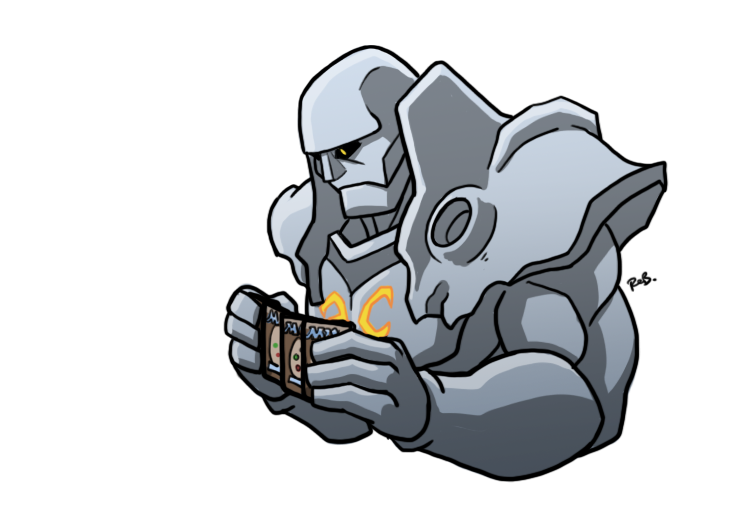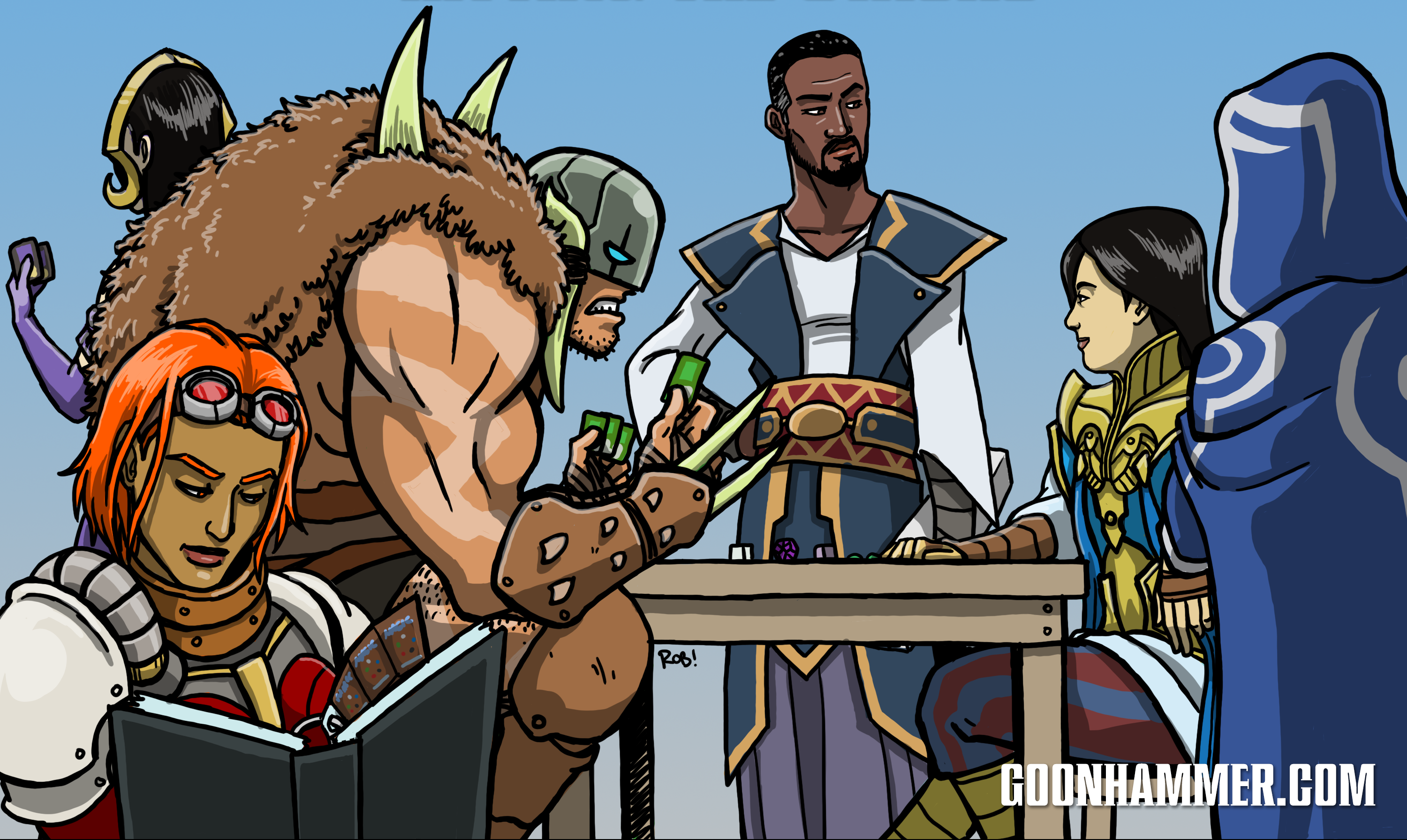CW: Self Harm/ Mental Health Discussion
Hello everyone, I hope you have all been good. This week I decided I wanted to talk about some lessons about Mental Health and gaming so I’m going to tell some stories from my 10 years of playing Magic. As a result, this article will have less “strategic” content but these are important experiences to share and it’s my hope that someone else out there struggling will feel less alone upon reading this.
Some background on me: I was recently diagnosed Bipolar II Disorder and have had a long battle with Mental health issues. The story starts in what I suspect is a familiar way: Growing up I was quite shy and introverted. I played a lot of games. I picked up MTG when I was at university and ended up having quite a talent for it. This was unusual to me because I am often very slow to pick up new games but MTG just made sense and I understood it. Soon after it became an obsession. I was in a bad relationship at the time and university was something I didn’t enjoy very much. While I was on a course I didn’t like in an abusive relationship, Magic was the only thing that made me feel good in my life. Especially the winning at it. I was playing FNM-style events 4 times a week and playing and watching content in all my spare time. At the same time, if I did badly or didn’t understand a format I would get frustrated. This would cause me to act in an unpleasant manner where I would want to destroy myself and take away from other people’s happiness. Magic had become an obsession for me: I liked the way the game felt and it kept me interested in living. Planning for events meant everything to me. Obviously this was an unhealthy start to my young adult life.
The lesson I learned is that I needed to not to make one game everything. I had friends in the city I was in and they cared; I just didn’t know how to ask for help. There is nothing wrong for asking for help, validation, or support.
After spending a lot of time being a big fish in a small pond, I moved to another city where the local players were much more concerned about winning. I had no expectations to be taken in by anyone and thought I would just keep grinding FNMs until the end of time. Eventually I did end up being taken in by some of the good players in the city but it was a very toxic environment – one that involved a lot of emotional manipulation, hazing, and abuse. We treated Magic like a job and our discussions around it were unhealthy. No one really liked or trusted the other members of the group and the environment was just negative. I felt a lot of pressure in this environment; I would have frequent panic attacks after testing and receiving messages from other people in the group would trigger my anxiety. But I wanted to be good at Magic so I viewed this as a necessary Faustian bargain. These people represented what I wanted form Magic – to be successful at something so badly.

I was very different from my Mum and Sister growing up. I loved learning and was always told I was going to be successful at university, though I found this hard to believe. By the time I moved to start my Master’s I didn’t feel like I had accomplished anything except for some minor success with Magic: the Gathering. I didn’t know what success looked like, so I believed that acting like other successful people would naturally make me successful, even if the environment I was creating and participating in made me miserable and hate myself. If I had a differing opinion about the metagame or how to approach things, I was humiliated and shamed. It was expected that my life would revolve around MtG and if I put work or a relationship or my mental health above Magic, I’d be accused of being a “bad friend,” or being lazy or self-centered. If I failed at an event I was laughed at for trying and had my parameters for success defined by others. As an example: One of my close friends won a PTQ with a deck that we built together (We worked out to mull any hand that didn’t contain Oko pretty quickly) and while I viewed the event as a success because my friend and I had worked together and made the right choices for the event, my teammate laughed at me for not making the Top 8 myself. I knew this was an abusive paradigm but I couldn’t just escape it. I couldn’t just say no.
Breaking out of toxic relationships is hard. I’d invested so much time with these people. Ironically looking back at my career all my success came from mostly working by myself. I qualified for the World Magic Cup playing a deck I knew well and designed myself. I won 6 PPTQs, often by just playing the decks I wanted to. And I made Top 4 of a 10k in England with a Bant Collected Company deck that I tweaked for the metagame. The people with whom I surrounded myself were very bad for me and led to a lot of self-harm and feeling suicidal because they made me feel like a failure. Often we would spend the whole week testing and arguing over cards and by the time I got to the event if I lost or did badly I knew I’d be harassed over it, which often led to me losing my temper. And to everyone I have lost my temper with: I am very sorry.
Eventually I did break out of that toxic friend group and that’s where the last part of our story begins.
Breaking away from the group was very strange for me I had invested everything in that particular group of friends and now suddenly I found myself alone. I’ve never really had much confidence in my MtG prowess, so I didn’t know how to proceed. I started playing a bit of Magic Online and I decided I would play some Vintage; it was easy enough to rent a deck and I signed up for my first Vintage Challenge and ended up splitting the finals. Then I continued to run really hot and placed in the top 8 of the next two challenges, which gave me a good sized bankroll to work with in Magic Online (MTGO). I like playing the big events on MTGO and after a while I was invited to “The Hivemind,” a community of high-level MTGO players. The Hivemind are a super supportive community and since joining I’ve made many awesome friendships, though this took some big adjustments on my part. I love working with others; every time someone does well with a deck I’ve built or collaborated on, I’m filled with happiness. The joy in MtG for me comes from learning the craft and solving the metagame puzzle. However being in a group filled with 80 or so MTGO heavyweights can create some real feelings of inadequacy. Recently I have been really close to some Top 8s on MTGO and have just missed out through a mix of not-so-good play and some inopportune luck. Mostly misplays on my part in all honesty. But being really close when you are in an environment of people who are very successful can be very hard. I also don’t tend to do well in large group environments – I am quite introverted and often have quite different thoughts of playing the game. I was crushed last weekend after not making the Top 8 of the Vintage Showcase qualifier, despite the fact that I built an awesome deck that was well received and we had two people in the Top 16 and one in the Top 32 who lost 3 “win-and-in” matches with the deck. I often feel like a failure if I am close, but Magic is hard and it really is better to be consistent then to just spike one event.
It’s so easy to get caught up in the moment for these events but taking a step back is broken good.
So to wrap things up, here are 8 things I’ve learned in my ten years playing Magic:
- Have Other Hobbies. Diversifying can help you keep things in perspective and give you other places to go when you need a break. I am a huge fan of wargaming and painting and am looking to compete in another arena. Who knows maybe one day I’ll be able to write about wargames for Goonhammer.
- Ask for Help. Please never be afraid to ask for help, I know getting professional help is really hard but there are free text/call services that might be a start. I promise you, you are worthy of help.
- Don’t play when you don’t want to. I wish I had listened to this but there is always another event to play. You don’t need to do everything now, playing events you aren’t tuned into isn’t likely to a happy ending. (INB4 someone says I won a PTQ not caring)
- Find environments you are happy to test in. Creativity flourishes in safe spaces where you can be comfortable taking risks and being wrong. For me this involves a small Discord group where we discuss decks we are thinking of playing.
- Taking Breaks is Broken. There is nothing wrong with taking breaks. There is a lot of pressure to compete and people often say taking a break is bad or that it makes you unworthy of wanting to compete, but this is flat-out wrong. Magic will still be there when you come back, and you’ll be better-equipped on your return.
- Hang out with the people you want to be like. Friends are so important. Playing with a jerk who’s good at the game might make you better at Magic but if they aren’t invested in you or are actively harmful to your mental health, the tradeoff isn’t worth it. Find the people who inspire you on and off the table.
- Manage your time well. Time really is the most important resource and it’s something Ill bang on about over and over while writing here. Work out what you want to achieve, understand the time investment it will require, and put that time aside to try and achieve it
- The road is long. MtG and well, life, is one long grind we are all learning how to do the best we can. Trying to do or achieve everything at once can lead to burnout, and any path is going to have twists, turns, and setbacks. You can’t rush success.
Have any questions or feedback? Drop us a note in the comments below or email us at contact@goonhammer.com.


